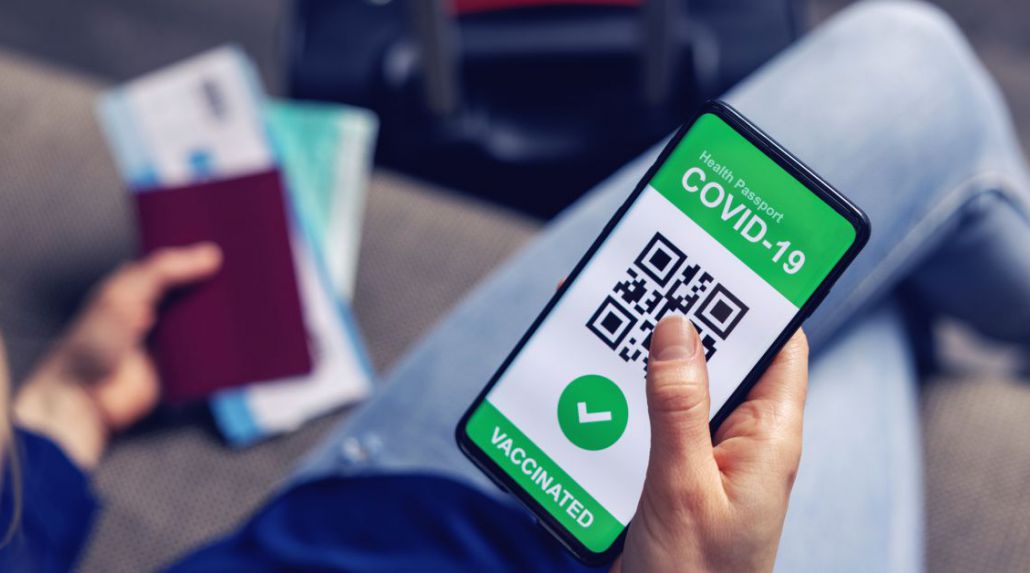

Vaccination passport reality check
Several newspapers ran headlines about the vaccination passport last week following the two-day EU summit. The media gave the impression that such passports will be issued soon. The response from both supporters and opponents has therefore been heated. The introduction of a vaccination passport could have major consequences for us and our clients, so we want to delve a little deeper than the headlines.
Confusion
Different concepts are often used interchangeably and wrongly in this respect. Common terms include vaccination certificate, vaccination passport, and Covid (or coronavirus) passport. These are actually three different things. A vaccination certificate provides proof of vaccination – nothing more, nothing less. A vaccination passport offers proof of vaccination that can be used to gain access to certain services – a restaurant or flight, for example. The Covid or coronavirus passport is similar to a vaccination passport but is used in a wider context, as will become clearer later on.
The spark that lit the powder keg
Austrian Prime Minister Sebastian Kurz was the spark that lit the discussion powder keg. He put the topic on the agenda with a proposal that was taken out of context even before it was on the table. The media almost unilaterally talked about a vaccination passport, even though the proposal was essentially about a Covid passport with a much broader scope. In his original proposal, Kurz talked about a passport to offer more freedoms back to people who received the vaccine, people who recovered from Covid and therefore have antibodies, and people who recently tested negative. That last addition is of particular interest, because it implies that the current PCR test results – which are already mandatory for many destinations – would be integrated into the passport. Kurz's proposal does not see the passport as a privilege for the vaccinated. It is simply proof that the holder is not infected with COVID-19.
What was really decided at the EU summit
Belgian newspaper HLN headlined: “Everyone agrees" on digital vaccination passport before the summer.
Sky News, which is slightly less pro-EU than the Belgian press, summarised the exact same news as follows: EU leaders divided over vaccine passports to allow European travel this summer.
To find out what was really decided, we went straight to the source and looked at the press releases from the European Council. President of the European Council Charles Michel said at the press conference: “We also discussed vaccination certificates. We agreed to continue our work on a common approach. More work needs to be done – on digitalisation and on cooperation with the World Health Organisation, but tonight we felt more and more convergence among us on this important topic. The European Council will come back to this matter.”
This was watered down even more in the subsequent official statement: “We call for work to continue on a common approach to vaccination certificates and will come back to this issue.”
So firstly, what is on the table is a common approach to a vaccination certificate, not a passport, which may be discussed further down the line. Secondly, there is still a lot of work to be done. Thirdly, there did not seem to be much agreement on the development of this vaccination certificate yet (see below).
Disagreement prevails
There is agreement on the development of a common certificate, but there is disagreement on what can and should happen with this certificate. Countries opposed to the introduction of a vaccination passport include Romania, Germany, France and Belgium. Some of them say that this is not the right time. Others say that it sends the wrong message and will create a two-tier society.
Israel's green pass
Supporters often refer to Israel, which has recently introduced a green pass. Israel’s pass offers holders access to more freedoms. The official website of the Israeli Ministry of Health states: “A green pass is an official document confirming you have either received a second dose or you have recovered. If you are eligible for a recovery or vaccination certificate, you can apply for a green pass. The pass for vaccinated individuals is valid for six months. For recovered individuals it is valid until 30 June 2021.”
The Valhalla of eternal regained freedoms is therefore not yet in sight, as no one knows what will happen after those six months or after 30 June 2021. Only time will tell.
So some nuance is therefore in order in this matter.
